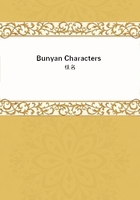
第47章 PRUDENCE {1}(2)
His outbursts of anger at home, he bitterly felt, might well be one of the causes why his wife and children did not accompany him on his pilgrimage. And though he knew his failing in this respect, and was very wary of it, yet he often failed even when he was most wary. Now, while anger is largely a result of our blood and temperament, yet few of us are so well-balanced and equable in our temperament and so pure and cool in our blood, as altogether to escape frequent outbursts of anger. The most happily constituted and the best governed of us have too much cause to be ashamed and penitent both before God and our neighbours for our outbursts of angry passion. But Prudence is so particular in her discourse before supper, that she goes far deeper into our anger than our wives and our children, our servants and our neighbours, can go.
She not only asks if we stamp out the rising anger of our heart as we would stamp out sparks of fire in a house full of gunpowder; but she insists on being told what we think of ourselves when the house of our heart is still so full of such fire and such gunpowder. Any man, to call a man, would be humbled in his own eyes and in his walk before his house at home after an explosion of anger among them; but he who would satisfy Prudence and sit beside her at supper, must not only never let his anger kindle, but the simple secret heat of it, that fire of hell that is hid from all men but himself in the flint of his own hard and proud heart,--what, asks Prudence, do you think of that, and of yourself on account of that?
Does that keep you not only watchful and prayerful, but, what is the best ground in you of all true watchfulness and prayerfulness, full of secret shame, self-fear, and self-detestation? One forenoon table would easily hold all our communicants if Prudence had the distribution of the tokens.
And, then, we who are true pilgrims, are of all men the most miserable, on account of that 'failing,' that rankling sting in our hearts, when any of our friends has more of this world's possessions, honours, and praises than we have, that pain at our neighbour's pleasure, that sickness at his health, that hunger for what we see him eat, that thirst for what we see him drink, that imprisonment of our spirits when we see him set at liberty, that depression at his exaltation, that sorrow at his joy, and joy at his sorrow, that evil heart that would have all things to itself.
Yes, said Christian, I am only too conversant with all these sinful cogitations, but they are all greatly against my will, and might I
but choose mine own thoughts, do you suppose that I would ever think these things any more? 'The cause is in my will,' said Caesar, on a great occasion. But the true Christian, unhappily, cannot say that. If he could say that, he would soon say also that the snare is broken and that his soul has escaped. And then the cause of all his evil cogitations, his vain thoughts, his angry feelings, his envious feelings, his ineradicable covetousness, his hell-rooted and heaven-towering pride, and his whole evil heart of unbelief would soon be at an end. 'I cannot be free of sin,' said Thomas Boston, 'but God knows that He would be welcome to make havoc of my lusts to-night and to make me henceforth a holy man. I